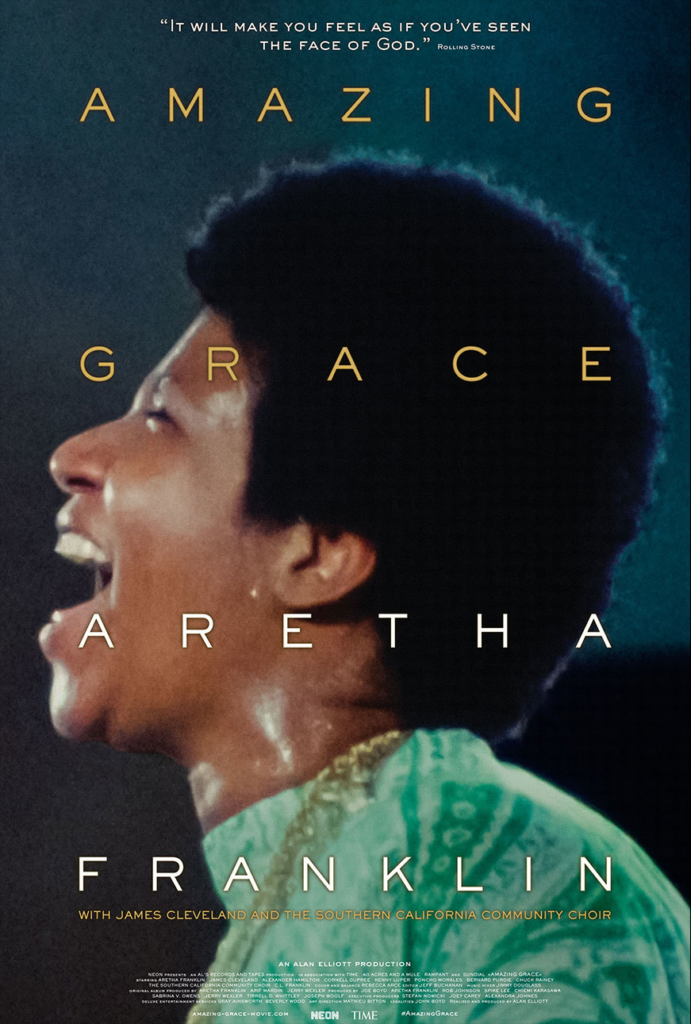Amazing Grace Christian Review

Imagine a time capsule cracked open, but instead of musty relics, it pours out notes, harmonies, and soul-shaking crescendos. Amazing Grace is that film, the one that pulls you back to 1972 and plants you in a small church in Los Angeles, heart racing, eyes wide, hands gripping the pew in front of you. It’s not just any church service—it’s Aretha’s church service. And more than that, it’s a spiritual thunderstorm, where the Queen of Soul ascends beyond mere performance and dives headfirst into something raw, holy, and utterly captivating.
The Queen Returns to Her Throne
The story of Amazing Grace is a story of return—Aretha Franklin, the chart-topping diva, deciding to shed the glitz and glamour and step back into the gospel tradition that made her. But this wasn’t a nostalgia act. She wasn’t there to simply remind everyone where she came from. This was something deeper. It was a reclamation. With every note, she seemed to be saying, This is who I am at my core. So she walked into New Temple Missionary Baptist Church, not as a pop star but as a prodigal daughter, and she opened her mouth to sing.
And the world stopped.
The result? An album that would become one of the best-selling gospel records of all time and a film that almost didn’t see the light of day. If you think the making of Amazing Grace was smooth sailing, think again. Technical disasters, legal tangles, and what seemed like fate’s own determination kept the footage locked away for decades. Only now, in the last few years, has it emerged, restored and radiant, like a jewel you thought you’d lost forever.
The Voice That Flattens You
What is it about that voice? People talk about Aretha’s voice like it was a force of nature—something elemental, beyond human control. And Amazing Grace captures that essence in ways no recording ever could. It’s more than pitch-perfect notes; it’s the way she drags each sound up from the depths, like she’s mining her own soul and tossing the gems into the air for you to catch.
There’s a moment in the film where she’s singing “Amazing Grace,” and it’s like you’re not even in your own body anymore. You’re floating somewhere above yourself, weightless. That’s the power Aretha wielded. She wasn’t just a singer; she was a medium. Her voice transformed those familiar gospel hymns into something celestial. “How sweet the sound,” she sings, and it’s like a breath from another realm—one moment a whisper, the next a roar. You feel it in your bones, in the pit of your stomach. It’s less a performance and more a summoning.
A Worship Experience, Not a Concert
But don’t mistake this for a concert film. It’s a worship experience, pure and simple. The small church setting, the low ceilings, the way the audience leans forward as if afraid to blink—it’s like everyone there knew they were witnessing something sacred. Reverend James Cleveland, accompanying her on piano, isn’t just there as a musician. He’s a guide, almost like Moses, ushering people toward the presence of something divine. When Aretha sings, it’s not about showing off. It’s about giving—giving herself, her voice, her pain, and her joy—to God and inviting everyone there to join her in that offering.
For those who grew up in a Black Church, Amazing Grace is like coming home. The sound of feet shuffling on wooden floors, the spontaneous cries of “Yes, Lord!” the way people leap to their feet when the spirit moves them—this is a place of belonging. But even if you’ve never stepped foot inside a church like this, the film draws you in, wraps you in its warmth, and says, This is what it means to praise. It’s a universal language: the language of surrender, of joy, of praise that can’t be contained. You don’t watch Amazing Grace so much as participate in it. You feel it in your chest, thumping like a second heartbeat.
Aretha’s Gospel, Aretha’s Glory
What makes this film special isn’t just the music, though. It’s Aretha herself—Aretha, stripped of the glamorous gowns and high heels, standing in a simple white dress. She’s not trying to impress anyone. She’s there to worship. And in that vulnerability, in that authenticity, she becomes more than a performer. She becomes a conduit. She sings “What a Friend We Have in Jesus,” and you believe her, really believe her. Because this isn’t a show; it’s her heart, laid bare, offered up without pretense.
Her father, Reverend C.L. Franklin, sits in the audience, a proud smile on his face, and you can see him watching not just his daughter but a kind of miracle unfolding. The choir—oh, the choir!—they respond to her like a wave, rising and falling in perfect harmony, as if carried along by a current they can’t quite control. It’s a sight to behold, and you realize that you’re not just watching Aretha; you’re watching a community in worship, a body of believers caught up in a moment that transcends time.
When Heaven Touches Earth
Then there’s the camera work, which is almost reverent. The camera lingers on her face, capturing every flicker of emotion, every bead of sweat, every moment of intensity. There’s something almost voyeuristic about it, as if you’re eavesdropping on a private conversation between Aretha and her Maker. And yet, you can’t look away. Because this is worship, and it’s beautiful in its unpolished, unplanned perfection. It’s not choreographed. It’s alive.
And that’s why the film feels so immediate, so real. You’re right there, squeezed between the pews, holding your breath as Aretha reaches those high notes, your eyes misting over as she leans into the melody. Even when the sound system cracks, or the camera wobbles, it doesn’t take away from the experience. It only adds to it. It’s flawed and human, just like the rest of us. And yet, through those imperfections, something divine shines through.
A Perfect Score for a Perfect Moment
So how do you rate something like Amazing Grace? How do you put a number on a film that’s not just a film, on music that’s not just music? It’s like trying to rate the sky or the ocean. You can’t. Because it’s more than the sum of its parts. It’s a glimpse of glory, a taste of heaven. Aretha Franklin took something familiar and infused it with so much power, so much emotion, that it stops being an album or a documentary and becomes a testimony. A testimony of grace, of faith, of beauty in the midst of pain.
For that reason, I can’t give it anything less than a perfect score. 10 out of 10 doesn’t even do it justice. Because this isn’t just a film to watch; it’s a film to experience. It’s a film that stays with you, echoing in your soul long after the final note has faded. If ever there was a cinematic moment that deserved the label “sacred,” Amazing Grace is it. So find a quiet spot, put everything else on hold, and let Aretha take you to church. Because this is one service you’ll want to attend again and again.




